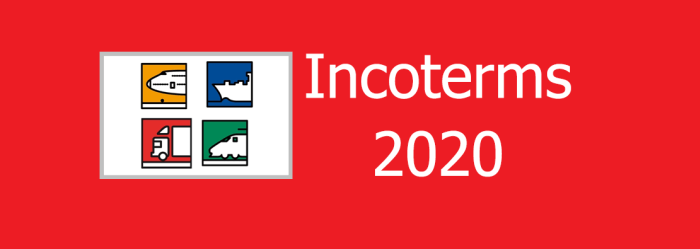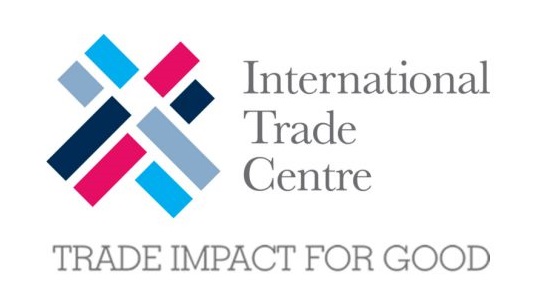Incoterms 2020: possible changes
Incoterms 2020: possible changes
The new Incoterms 2020 are already being elaborated by the International Chamber of Commerce (ICC), which publishes them since 1930. In the last decades, there has always been a revision of Incoterms coinciding with the first year of each one: 1990, 2000 and 2010, which is the latest version and is currently in effect.
The Incoterms 2020 are being prepared by a drafting committee, which for the first time was made up of representatives from China and Australia, although most of the members are European. This Committee meets periodically to discuss the different issues that come from the 150 members (mainly Chambers of Commerce) that are part of the International Chamber of Commerce.
The new Incoterms are expected to be published in the last quarter of 2019, coinciding with the centennial of the International Chamber of Commerce, and to come into effect on January 1, 2020.
Some of the new issues and changes that are being evaluated at the Drafting Committee meetings to incorporate in the new edition of Incoterms 2020 are:
Disposal of EXW and DDP Incoterms
It would be a major change since the EXW is an Incoterm used by many companies with little export experience and the DDP is also commonly used especially for goods (samples or parts) that are shipped via courier companies that deal with the whole logistics and customs processing until delivery to buyer’s address. The justification for deleting these two terms is that they are actually domestic operations: in the case of the EXW by the seller-exporter and in the DDP by the buyer-importer. In addition, these two Incoterms contradict in some way the new Customs Code of the European Union, since the responsibility of exporters and importers occurs when the export and import dispatch was executed, respectively.
Elimination of Incoterm FAS
The Free Alongside Ship (FAS) is a very little used Incoterm and, in fact, it contributes almost nothing to the Free Carrier Alongside (FCA) which is used when the goods are delivered to the exiting port of the exporter’s country. In FCA, merchandise can also be delivered at the dock, as in the FAS, since the dock is part of the maritime terminal. On the other hand, if this Incoterm is used and there is a delay in the arrival of the ship to the port, the merchandise will have to be available to the buyer at the dock for several days and, on the contrary, if the ship goes ahead, the merchandise will not be available for shipment. In fact, the FAS is only used in the foreign trade of some commodities (ores, cereals) and, in this sense, the editorial board is considering the creation of a specific e-commerce for these Incoterm products.
Unfold the FCA in two Incoterms
FCA is the most commonly used Incoterm (about 40% of international commercial operations are carried out with this Incoterm) because it is very versatile and allows the delivery of goods in different places (address of the seller, land transport terminal, port, airport, etc.), almost always in the seller’s country. It is being analyzed to create two Incoterms FCA – one for terrestrial delivery and another for maritime deliveries.
FOB and CIF for container shipping
The modification made in the edition of Incoterms 2010 so that when the goods are not placed in containers the Incoterms FOB and CIF, but their counterparts FCA and CIP, are not being applied by the great majority of exporting and importing companies, nor agents involved in international trade (freight forwarders, logistics operators, banks, etc.). This is because FOB and CIF are two very old Incoterms (FOB was already used in England in the late eighteenth century), nor was much effort made by the International Chamber of Commerce to adequately convey this change, which is very important, already that approximately 80% of world trade is carried out by containers. In Incoterms 2020 it is possible that FOB and CIF can be used for transporting containers as happened in Incoterms versions 2000 and earlier.
Creation of a new Incoterm: CNI
The new Incoterm named CNI (Cost and Insurance) would cover a gap between FCA and CFR/CIF. Unlike the FCA, it would include the cost of international insurance on behalf of the seller-exporter and, unlike the CFR/CIF, would not include freight. As in the other Incoterms in “C” would be an incoming Incoterm, the risk of transport would be transmitted from the seller to the buyer at the port of departure.
Unfold the Incoterm DDP in two Incoterms
As with the FCA, DDP also causes some problems due to the fact that tariffs and customs expenses of the importing country are paid by the seller, regardless of the place of delivery of the goods. Therefore, the Drafting Committee is considering creating two Incoterms based on DDP:
DTP (Delivered at the Terminal Payment): when the goods are delivered at a terminal (port, airport, transportation center, etc.) in the country of the buyer and it is the seller who assumes the payment of customs duties.
DPP (Delivered to Local Payment): when the goods are delivered to any location other than a transport terminal (for example, at the address of the buyer) and it is the seller who assumes payment of the customs duties.
In addition to the elimination and creation of some Incoterms, the Drafting Committee is analyzing other topics to be included in the new version of Incoterms 2020. Among them:
– Transportation security.
– New regulations on the types of transport insurance.
– Relationships between Incoterms and international contracts of purchase and sale.
Over the next few months, the Committee will meet periodically to discuss these and other issues that will eventually be included in Incoterms 2020. Just to remind you: the version of Incoterms 2020 will come into effect on 1 January 2020.
Incoterms 2020: possible changes
You can see other stories about Incoterms – and other foreign trade topics – on the Intradebook blog.
Source: Global Negotiator (http://globalnegotiator.com/files/Incoterms-2020-cambios.pdf) e Intradebook








Your preview of Incoterms 2020 is totally wrong! You have unfortunately followed the fiction that one person started and every point he made is simply a figment of his imagination. By way of my credentials, I am one of the Incoterms 2020 Drafting Group. I recommend you delete that page before you suffer extreme embarrassment when the new rules come out.
Dear Bob,
Thank you for your comments.
But as you can see the article talks about “possible changes”. It does not say that they will be these.
On the other hand, I believe Incoterms’ changes should be made transparently and listening to all sectors of foreign trade, not simply a closed box.
I am at your disposal if you would like to make your comments as a member of the Drafting Group.
Regards,
Alfredo Kleper Lavor
Economist
Good day, i would like to know when will the new Incoterms be launched
Dear Moses, good morning. The new Incoterms is expected to be published by ICC from October 2019 and will be effective January 1, 2020. Regards. Alfredo Kleper Lavor, CEO of Intradebook